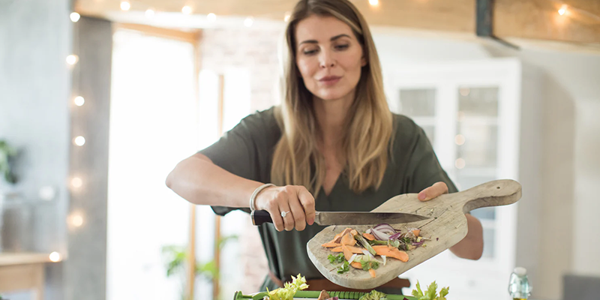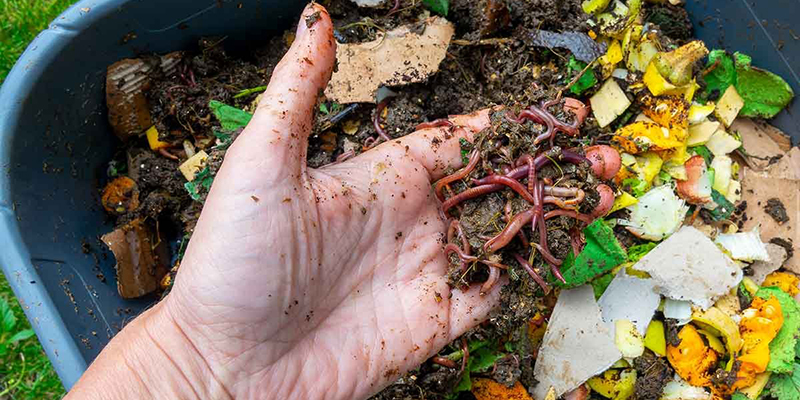Sustainability is no longer a choice for the world. It is the need of the hour. If you are a beginner keen on learning how to reduce food waste and dabble in composting, keep reading on. This guide will teach you everything you need to know about starting composting in your kitchen.
Sustainability is no longer a choice for the world. It is the need of the hour. If you are a beginner keen on learning how to reduce food waste and dabble in composting, keep reading on. This guide will teach you everything you need to know about starting composting in your kitchen.
What Is Composting?
Composting is the process of decomposing materials like food scraps, waste, and paper products into a nutrient-rich material called humus. It is a way of recycling, turning waste into something valuable.

Why Should You Compost In Your Kitchen?
Reduces Waste: Many food scraps and waste are in the kitchen daily. With the right composting at home, you can avoid the amount of waste that goes to landfills.
Save Money: Instead of buying expensive commercial fertilizers, you could compost in your garden and enjoy the results.
Eco-friendly decision: Organic waste decomposing in landfills increases methane production, a significant greenhouse gas. Composting in your kitchen and home is a planet-saving decision.
Best for Plants: Natural compost mix is best for plants. It enriches the soil and ensures excellent growth.
How To Start Composting From Your Kitchen?
The steps below will help you successfully compost right from your kitchen.
1. Understand The Compostable Items
The initial step is to gather information about items that you could compost. These include fruit and vegetable scraps, coffee grounds, tea bags, eggshells, nut shells, leftover pulses, cut paper, and plant clippings.
You must avoid meat residues, such as bones, dairy products, greasy foods, plastic, metal, or diseased plants or weeds.
2. Choose Your Preferred Method
There are many different types of composting methods. Each differs in terms of space, budget, or even goals. You can choose the one that is the perfect fit for you.
- Countertop Composting:
This method is best for small spaces. These composting bins can temporarily store food scraps and waste. They usually come with charcoal filters, which mask any odours. Once the bin is complete, you could transfer the contents to an outdoor compost bin.
- Worm Composting
Also known as vermicomposting, this method uses worms to break down organic waste, creating nutrient-rich castings. These are great for indoors as there is no upsetting odour. You only need a worm bin, red wiggler worms, and newspaper to act like bedding.

- Bokashi Composting:
This famous fermentation-based method uses a special bran to break down food waste, including meat and dairy. It is suitable for indoor use as it is compact. You can buy a bokashi bin and some bran. Add your food waste, seal the bin, and let it ferment. After about two weeks, you could bury this waste in the soil to complete the decomposition process.
3. Setting Up Your Composting System
Find the Right Spot: You need to choose an easily accessible location. Under the sink is a crowd-favourite spot. A well-ventilated spot is the key.
- Select the Preferred Bin: Choose the compost bin you prefer.
Prepare the Bin: Line up your bin with newspaper or cardboard. This will hold and absorb any moisture. You can also buy some composting bags for easy transfer.
Start the Composting Process: Add food scraps as and when you have them. If there are big pieces, cut them into smaller pieces. Stir the contents every few days to aerate and speed up the breakdown process.
Time to Use the Compost: Wait until your compost looks like dark, crumbly soil. This is when it is ready to use. You can use it as a plant potting mix or spread it in your garden.
Let Us Start Composting!
Make composting a habit. Like a good habit, composting has long-lasting compounded benefits. Not only are you doing your part in saving the planet, but you are also producing nutrient-rich manure for your plant babies. So, what are you waiting for? Grab a compost bin, start collecting those scraps, and take your first step toward a greener lifestyle!
- Share this article:
-
![Top 6 Christmas Markets In Europe You Can't Miss]() Travel
Travel - Top 6 Christmas Markets In Europe You Can't MissHave you ever had a fantasy that includes enjoying hot mulled wine and strolling through festive streets lit by Christmas lights as you enjoy seasonal favourite meals? Many believe Europe's Christmas markets showcase the most magical holiday atmosphere, with gorgeous decorations, unique handcrafted items, and joyful seasonal customs.
-
![How To Choose The Perfect Lighting For Every Corner Of Your Kitchen?]() Home & Garden
Home & Garden - How To Choose The Perfect Lighting For Every Corner Of Your Kitchen?Lighting plays a crucial role in the design of a living space. Lighting is also essential in a kitchen design, albeit usually overlooked. Only the proper lighting can bring up the aesthetic that you are looking for. Many times, the design of a space might not reach its desired height because of the lighting. We will help you explore various lighting options and techniques to create a well-lit, functional, and stylish kitchen.









